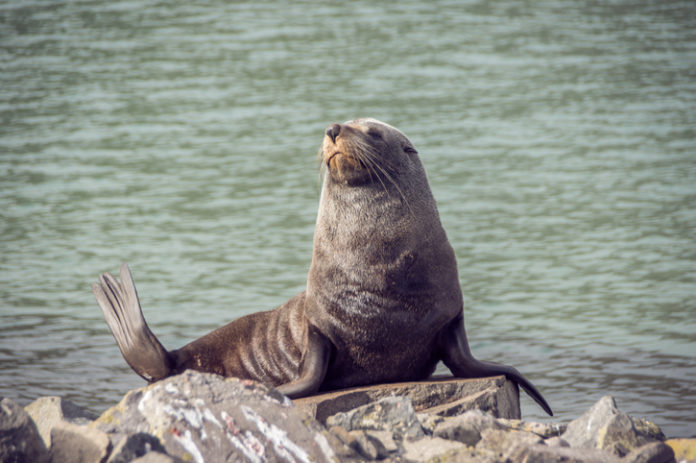The Department of Conservation (DOC) is urging the public to admire NZ fur seals/kekeno from a safe distance as the mammals come ashore for winter.
DOC says reports of adventurous seals turning up in unusual areas are flooding in from around the country.
“It’s that time of year again – seal silly season,” says DOC Marine Science Advisor, Laura Boren.
“Despite it happening every winter, it takes people by surprise.
“It’s exciting because it really indicates that fur seals are doing well, and this time of year provides for some unique and special encounters with them.”
Between May and September, young seals and male seals of any age can be spotted as they leave their breeding colonies to explore and rest.
“We’ve had reports from the West Coast, where a seal turned up at the Hokitika Transfer Station, a three or four km swim from the sea, all the way up to Northland, where two seals were recently moved off the main road in Whangarei,” says Ms Boren.
In May, a kekeno was rescued in Otago after becoming entangled in fishing gear, the third to be successfully freed in the area since late April.
Although kekeno are marine mammals, they spend much of their time on land resting and basking in the sun. They are most often found on rocky shores but are curious and exploratory by nature, occasionally traveling up rivers.
Last October, one adventurous seal in the Waikato ventured to the Hobbiton movie set, 90km inland, says Ms Boren.
She said while people may be worried seeing young pups alone, or seals regurgitating, sneezing, coughing, or crying, there is no need for concern.
“This is all part of their normal behaviour, and they are very resilient animals. Watch, enjoy them from a distance, and let them be. Call the DOC hotline only if they are in immediate danger, like relaxing on a road, severely injured, or tangled in debris.”
Ms Boren said one way people can help keep kekeno safe during winter is to keep dogs under control.
“If you are walking your dog in areas where seals regularly haul out, or see a seal on your beach, put your dog on a lead until you are away from the seal.”
“Nearly half of the hotline calls we receive about dogs and wildlife interactions are seals or sea lions being harassed or attacked. This is bound to be a fraction of what occurs.
“It’s a year-round issue but particularly this time of year, when you can come across seals in unexpected places,” she said.
If you see a seal which is severely injured, being harassed, or in obvious danger, call 0800 DOC HOT (0800 362 468).



